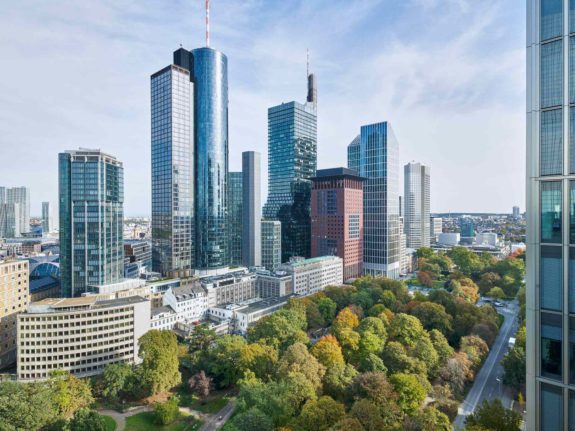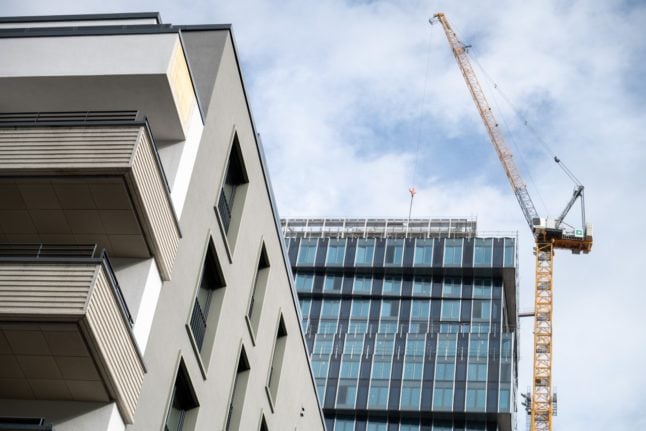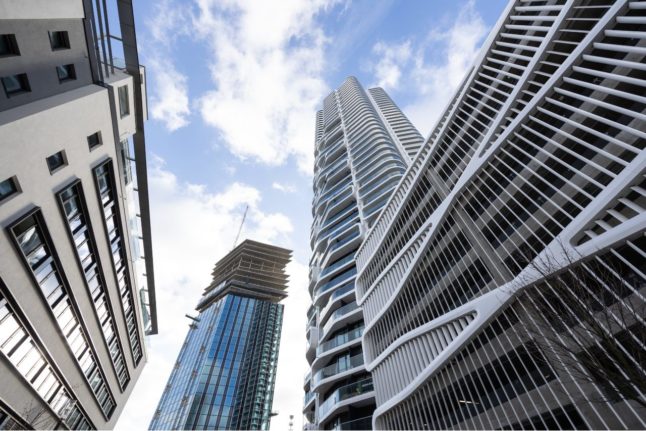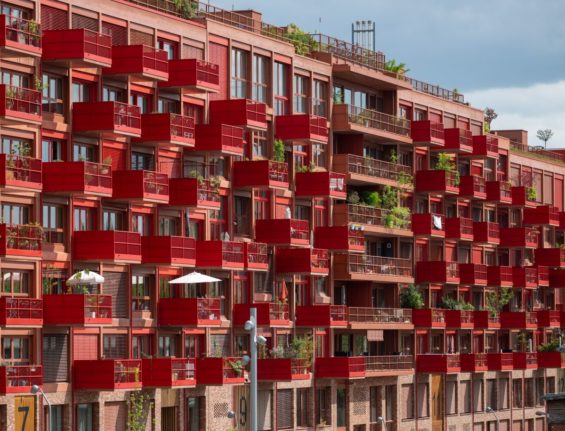It’s no secret that Germany’s property market as been slowing down in recent months. Across almost all major cities, prices for houses and flats slumped in the previous quarter as prospective buyers turned to the rental market instead.
But in Frankfurt am Main, the Hessian capital that has long had some of the most expensive real estate in Germany, the turnaround is far more noticeable.
According to a new report by the Association of German Pfandbrief Banks (VDP), prices for residential properties in Frankfurt have dropped by an astounding 6.7 percent compared to the same period last year. This is a far more dramatic dip than the previous quarter, where Frankfurt saw a year-on-year decline of 2.7 percent.
In Hamburg, Düsseldorf, Cologne, Stuttgart and Munich, there’s been a year-on-year decrease of between 2.3 and 3.8 percent for residential homes, VDP revealed. In Berlin, on the other hand, prices went up slightly.
Experts say there are multitude of factors behind the slowdown on Frankfurt’s housing market, from lower investment to out-priced buyers.
High property prices and costs
While Frankfurt has long been seen as mecca for well-heeled buyers and property investors, it hasn’t always been that way. In fact, according to real estate experts, the true boom has only happened in the past ten years or so.
“Frankfurt was undervalued for a long time compared to other cities in terms of real estate prices,” Till-Fabian Zalewski, who covers the DACH region at real estate agent Engel & Völkers, explained.
However, between 2014 and 2021, prices began to rise significantly, catapulting it to a new status as one of Germany’s priciest cities.

READ ALSO: REVEALED: The German regions where property prices are falling and rising the most
It’s this status that has partly contributed to the slowdown in Frankfurt’s property market, experts say. Combined with soaring interest rates, buying a residential property in the banking capital is now out of reach even for high earners.
Real estate agent Von Poll believes this is one of the key reasons why the property market in Frankfurt has seen the clearest drop in prices. The sky-high prices in Frankfurt make it comparable to the notoriously expensive city of Munich, said Daniel Ritter, managing partner at Von Poll.
“Now prospective buyers have to recalculate because of the increased mortgage rates – they wait and negotiate more,” he said. This leads to fewer deals closing at the original asking price.
In a recent survey of property prices by Postbank, the average price for property in Frankfurt is around €6,655 per square metre.
Fewer international buyers
The housing market trends may also relate to Frankfurt’s large international community, who are taking a cautious approach in the current economic climate.
This is the view of broker Jones Lang LaSalle (JLL), which has also noted a steeper drop in prices in Frankfurt than any of the other major seven cities in Germany – though only slightly more than Düsseldorf and Munich.

JLL explained that the low construction rate in Frankfurt would normally have the opposite effect on housing prices, suggesting that there were other key factors at play. “For example, that international buyers, who are traditionally particularly active in Frankfurt, are currently holding back,” the broker said.
In 2021, almost one in five Frankfurt residents – or 18 percent of the total population – were foreigners. In many cases, people without long-term resident rights find it more difficult to get mortgages – especially in an unstable economic climate where interest rates are climbing every quarter.
READ ALSO: What to know about mortgages and fees when buying property in Germany
In addition, the market for high-rise residential buildings, which are particularly well represented in Frankfurt, has become more difficult, says Ritter from the Voll Poll estate agency.
The risks and increased housing costs are difficult for investors and prospective buyers to calculate, which means that more flats from high-rise residential buildings are currently coming onto the real estate market.
Uncertain future
JLL also pointed out that capital investors are a particularly strong segment of Frankfurt’s real estate market, which means the cooling off in the investment market has hit the city hard.
The investment market doesn’t just include big real estate companies, but also smaller private buyers who purchase what are known as a “Kapitalanlage” – a tenanted property that is purchased more as an investment than to live in.
The real estate specialist CBRE recently reported that the investment market in Frankfurt had slumped by 92 percent in the first quarter to a volume of €201 million. This was the weakest result among Germany’s top five investment locations, it said.
That’s likely because of the uncertain future of Frankfurt’s housing market – and the real estate market across Germany. High interest rates have had a particularly severe effect on demand for residential property, and there are fears that prices in places like Frankfurt and Munich could currently be over-inflated.
Back in 2021, Frankfurt took the top spot in the UBS Global Real Estate Bubble Index, coming in ahead of Toronto, Hong Kong, Munich, Paris, Amsterdam and Zurich as the city with the biggest housing bubble in the world.
However, as Till-Fabian Zalewski from luxury real-estate broker Engel & Völkers points out, property in Germany’s metropoles generally remains in high demand.
READ ALSO: Ask an expert: Is now a good time to buy property in Germany?




 Please whitelist us to continue reading.
Please whitelist us to continue reading.
Member comments